A simulation of a 1975 match
When recently I was reading Matthew Wilson's article on the probable result of a Fischer vs Karpov World Chess Championship match in 1975 I saw that this topic aroused great interest and a lot of discussions among ChessBase readers. Some commentators expressed the opinion that Bobby Fisher would have won such a match while others pointed out that he hadn't been playing for three years and therefore Karpov would have had good chances to become the new champion. The prognosis in the article that Bobby Fischer would have won was mainly based on the Elo ratings of the players (2780 vs 2705 in favour of Fischer). Isn't there any better way to get an answer? Suddenly an interesting thought came into my mind: Can a computer simulation reveal the outcome of a Fischer-Karpov match, if it had taken place in 1975? And I decided to give it a try. But how could this be accomplished?
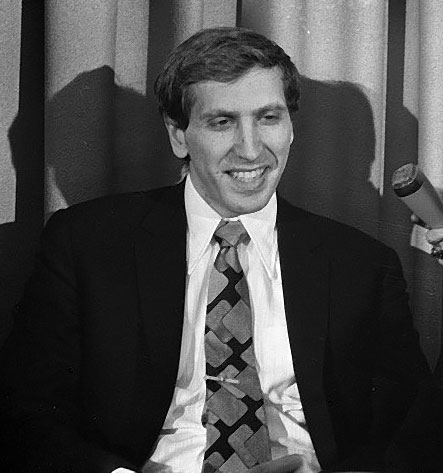 Some months ago when doing some research on computer chess I found Norman J. Brendan's blog. I discovered that there were interesting articles, a lot of funny games and good pieces of advice, especially for amateurs who want to improve their play. In one article a chess engine by Dutch programer Ed Schroeder was reviewed: Rebel 13/ProDeo 2.0. Brendan pointed out that this engine has a very human-like playing style and plays even better using so-called personalities like "MACHEID", "ALEXAL", "Storm" etc. The games played by these personalities were really impressive and Brandan stated that these games could as well have been played by strong humans. I did not investigate this any further, but now, thinking of the Fischer vs Karpov match, I got curious: Are there personalities of Bobby Fischer and Anatoly Karpov for Rebel 13? And when I opened the folder containing the available personalities for this engine I did find the names of these two great chess players. Wow! A computer simulation of a 1975 World Championship match was now within reach.
Some months ago when doing some research on computer chess I found Norman J. Brendan's blog. I discovered that there were interesting articles, a lot of funny games and good pieces of advice, especially for amateurs who want to improve their play. In one article a chess engine by Dutch programer Ed Schroeder was reviewed: Rebel 13/ProDeo 2.0. Brendan pointed out that this engine has a very human-like playing style and plays even better using so-called personalities like "MACHEID", "ALEXAL", "Storm" etc. The games played by these personalities were really impressive and Brandan stated that these games could as well have been played by strong humans. I did not investigate this any further, but now, thinking of the Fischer vs Karpov match, I got curious: Are there personalities of Bobby Fischer and Anatoly Karpov for Rebel 13? And when I opened the folder containing the available personalities for this engine I did find the names of these two great chess players. Wow! A computer simulation of a 1975 World Championship match was now within reach.
Above: Fischer in Amsterdam, 1972
On this DVD a team of experts looks closely at the secrets of Karpov's games. In more than 7 hours of video, the authors examine four essential aspects of Karpov's superb play.
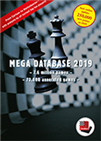 The "Mega" is the database every serious chessplayer needs. The database contains 7.6 million games from 1500 to 2018, in highest quality standard, full of top level analyses and completely classified.
The "Mega" is the database every serious chessplayer needs. The database contains 7.6 million games from 1500 to 2018, in highest quality standard, full of top level analyses and completely classified.The next thing I had to do was to prepare four opening books: Bobby Fischer and Anatoly Karpov playing with the white pieces and two more opening books for the black pieces. In the Mega Database, I found several hundred games played by each player until the end of the year 1975. It would have been unwise to use games from later years, e.g. from Karpov's World Championship matches against Korchnoi (1978 and 1981) or Kasparov (1984-85, 1985, 1986, 1987 and 1990) or from Fischer's rematch with Spassky (1992). What could they possibly contribute to the simulation of a 1975 match? Nothing! In all probabillity, using these games would only falsify the results. What might be the most promising setup for the opening repertoire of Karpov and Fischer in 1975? I think the answer is obvious: In order to produce a maximum of tension I had to use only games which had been won by Fischer or Karpov, even with the black pieces. Of course, drawn games could have been used, too, especially for the play with the black pieces. But I had to make up my mind and I decided to use only wins up to a total depth of 15 moves.
Then I installed the engines under my Fritz-GUI. I used exactly the same files for both the Fischer and Karpov personalities of Rebel 13/ProDeo 2.0 and copied them into two different folders. Exactly the same parameters were used for both engines with the only difference that I used the "Fischer" personality for creating Robert James Fischer and the "Karpov" personality for creating Anatoly Karpov. At last the computer simulation was ready to start. In order to produce a playing strength that could be compared with the "real" players back in 1975 I set the time control to 40 minutes for the first 40 moves, 40 minutes for the next 40 moves and finally 40 minutes for the rest of the game with an increment of 60 seconds per move beginning with move 81.
The World Championship match Bobby Fischer vs Anatoly Karpov in 1975 is ready to start!
The match
On November 11th, 2018, the match Bobby Fischer vs Anatoly Karpov began as a computer simulation, 43 years later than it would really have taken place. We know for sure that Bobby Fischer insisted on playing for ten wins without limiting the total number of games and that a 9-9 would have allowed him to retain his title without playing any further. These conditions were not accepted by FIDE back then in 1975, and in fact, they would have been really unfair, but for the computer simulation I had no other choice: Bobby Fischer's conditions had to be applied. Otherwise, there would have been no match Fischer vs Karpov! I drew lots to decide which player has the white pieces in the first match game and Bobby Fischer was luckier. He will have the first move!
The 17 games of the "Fischer" vs "Karpov" match
Now let's see what sort of games were produced by the Fischer and Karpov personalities of Rebel 13 in my computer simulated 1975 World Chess Championship match. Some of them are really impressive! Again, I must stress — these games were not played by Bobby Fischer and Anatoly Karpov themselves, but by a computer program attempting to simulate their playing styles. Nevertheless, I'll use the names of "Robert James Fischer" and "Anatoly Karpov" just as if they had played these games themselves, for the sake of the narrative.
Replay all games in full below!
Game 1
In a Ruy Lopez Karpov sacrifices a pawn "on position". After missing the strongest continuation he has to fight for a draw. By a pretty knight sacrifice, he neutralizes Fischer's advantage and the endgame ends up as a draw.
Game 2
Very aggressive play by Karpov against Fischer's Najdorf Sicilian. He sacrifices a knight for two connected passed pawns, but Fischer proves that his pieces are superior and wins the endgame. 1-0 for Fischer.
Game 3
In a Ruy Lopez (Breyer variation) Karpov plays a little too careless with the black pieces. By playing 20...Bxd5 he would have had good chances to draw the game, but he recaptures with the knight and Bobby finds a very subtle move (21.Red1!) winning a piece by force.
Karpov's only compensation is his passed e-pawn, but Bobby avoids a trap which might have saved Black's game and wins easily. 2-0 for Fischer.
Game 4
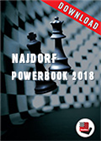 The Najdorf Powerbook 2018 is based on an incredible 3.2 million games! The lion's share is provided by the engine room on playchess.com, with the addition of 72,000 games from human experts.
The Najdorf Powerbook 2018 is based on an incredible 3.2 million games! The lion's share is provided by the engine room on playchess.com, with the addition of 72,000 games from human experts.A Najdorf variation with some wild complications in the early middlegame. Two inaccurate moves in a difficult rook ending (42.b5? and 47.Rc6?) cost Karpov the game.
3-0 for Fischer.
Game 5
Bobby Fischer surprisingly comes up with 3.Bc4 instead of the Ruy Lopez and Karpov avoids both the Giuoco Piano and the Two Knights Defense by playing 3... Be7. White's 22nd move 22.g3? weakens his King's position.
Karpov starts a nice attack which prevails. 3-1 for Fischer.
Game 6
A great game by Fischer! In order to avoid the Najdorf variation, Karpov plays a Closed Sicilian. Bobby Fischer starts a furious attack with h7-h5-h4-h3 (moves 5-8).
Karpov misses some chances to equalize and after a hard fight loses the endgame. 4-1 for Fischer.
Game 7
Fischer plays the exchange variation of the Ruy Lopez. Karpov defends the slightly worse endgame accurately and after 49 moves a draw is agreed.
Game 8
Another great game by Fischer! In a Najdorf Sicilian, Karpov gets two strong pawns on e4/c4 and the bishop pair, but Bobby delivers a masterpiece by completely dominating the white bishops with his two knights. Instead of defending the inferior position patiently, Karpov sacrifices the exchange but is not able to get enough counterplay. Bobby Fischer answers with a counter-attack offering a pawn and the exchange himself and ends up in an ending with the exchange up. After 64 moves Karpov resigns and Fischer leads 5-1.
Game 9
Bobby Fischer wants to take revenge for his loss in game 5 and goes for the Giuoco Piano instead of the Ruy Lopez. Karpov plays 3...Be7 for a second time and the same moves are repeated until Fischer deviates by playing 18.f4.
Like in game 5 Karpov starts an attack on White's King offering a pawn sacrifice which Fischer accepts. It would have been wiser to decline the pawn and after carelessly grabbing a second one Karpov is able to maintain an advantage which proves decisive in the endgame. A good game by Karpov! 5-2 for Fischer.
Game 10
Karpov strikes again, and this time in a spectacular manner. At last, he has found something against Fischer's Sicilian Defense. At move 15 he sacrifices a knight in order to destroy Black's King's position. Fischer misses the best defence and his position is demolished. 5-3 for Fischer.
Game 11
In the closed variation of the Ruy Lopez three minor pieces, some pawns and the queen on each side are exchanged. After some inaccuracies and a bad move (31.Re2?) by Fischer, the challenger wins the endgame (0:1/57).
What a surprise: Karpov has won three games in a row! Only 5-4 for Fischer!
Game 12
This time Bobby Fischer plays the Sicilian with e6 and a6 (Paulsen). Karpov sacrifices a pawn in order get the bishop pair and a lead in development. Fischer accepts the challenge and takes the pawn. An interesting fight with chances for both sides arises. After a mistake (34.h5?) Fischer gets the upper hand and wins the endgame after 62 moves.
6-4 for Fischer! If the match had been played according to the rules proposed by FIDE which were applied later on in 1978, 1981 and 1984 the final result would have been 6-4 with 2 draws in favour of Fischer. But the computer simulation of the World Chess Championship 1975 is played according to Fischer's rules and therefore 10 wins are required to win the match.
Let endgame expert Dr Karsten Müller show and explain the finesses of the world champions. Although they had different styles each and every one of them played the endgame exceptionally well, so take the opportunity to enjoy and learn from some of the best endgames in the history of chess.
Game 13
After having lost game 11 in a Ruy Lopez, Fischer plays 3.Bc4 for the third time and Karpov answers with 3... d6 which often transposes into the 3... Be7 lines with which he had been successful in two former games. But this time Karpov plays 4...exd4 instead of Be7 and comes up with a novelty (7...Nf5) which has never been seen before.
White soon offers a pawn for speedy development, but Karpov declines. Bobby Fischer plays brilliantly but misses the strongest continuation (12.Be2!) and the game looks drawish. In the endgame, Karpov is a pawn down, but the game should end up in a draw because of the bishops of opposite colours. But then he blunders (34...h5?) and Fischer wins the endgame by precise and energetic play. 7-4 for Fischer.
Game 14
After his loss in game 12, Karpov avoids the open Sicilian and plays the closed variation instead soon sacrificing a pawn in order to open the f-file. Bobby Fischer takes the pawn and Karpov is not able to get enough compensation for it. The resulting endgame is lost for Karpov. 8-4 for Fischer.
Game 15
For the first time in this match Karpov plays the Sicilian with the black pieces. In the middlegame, Fischer grabs a pawn and then another one, but the resulting endgame is not easy to win. Both players miss the best moves and finally after a long struggle Karpov playing with the bishop pair against bishop and knight succeeds in neutralizing White's last passed pawn.
Fischer liked to play aggressive but basically sound lines against the Sicilian and many of his variations are still very much alive and a good choice for players of all levels.
Game 16
A great game with plenty of beautiful combinations in several variations. Bobby Fischer plays the Sicilian with e6 and a6 which had been successful in game 14. Karpov avoids the unsound pawn sacrifice from last time and gets a good position. Now Bobby Fischer begins to play in a very provocative way by not castling and sacrificing a pawn in order to open the h-file for a King's side attack. Karpov misses several opportunities to take the adverse e-pawn. Finally, he grabs it, but too late! Bobby Fischer avoids two pretty traps by Karpov and equalizes the game by a fine queen manoeuvre. Then a balanced endgame is on the board which Bobby Fischer wins after Karpov has missed 54.Ba5!.
Now Fischer leads 9-4 and can no longer lose his title according to the 9-9 rule. But as the match might still end up as a 9-9 tie Karpov and Fischer must play on.
Game 17
In a closed Ruy Lopez, Bobby Fischer grabs a pawn, but Black has still good chances due to his strong two bishops. But then the game gets very tactical and in an already inferior position, Karpov finds a combination which seems to be advantageous for him. But he misses 32.Qxb4! and this miscalculation costs him the game.
Final result: 10-4 for Fischer
All games of the (simulated) match
| Replay and check the LiveBook here |
Please, wait...
1.e4 e5 2.Nf3 Nc6 3.Bb5 a6 4.Ba4 Nf6 5.0-0 Be7 6.Re1 b5 7.Bb3 d6 8.c3 0-0 9.h3 Na5 10.Bc2 Bb7 10...c5 11.d4 11.b4 11.d4 11.d3 11...Nc4 12.a4 a5!? 12...d5!? 13.exd5 e4 14.Ng5 Qxd5 15.Nxe4 Nd6∞ 12...Nb6= 13.d3 Nb6 14.axb5 axb4 15.Rxa8 Qxa8 16.cxb4 Nfd7 16...Qe8! 17.Nc3 17.Na3 d5 18.Bd2 Qa8 19.Qc1 dxe4 20.Nxe5 exd3 21.Nxd3 Re8 21...Bxg2? 22.Rxe7 Bxh3 23.Ne1 Qc8 24.Re3! 22.f3 17...d5 18.exd5 18.Bd2 d4 19.Na4 Qxb5 18...Nfxd5 19.Nxd5 Nxd5 20.Nxe5 Bxb4 21.Bd2 Qxb5= 17.Bg5 Bxg5 18.Nxg5 Qd8 19.Nf3 Qe7 20.Bb3 d5 21.Bxd5 21.Qd2!? 21...Bxd5 22.exd5 Nxd5 22...Qxb4! 23.Nxe5 Nxe5 24.Rxe5= 23.Qb3 Nf4 23...Qd6 24.Qc3 24.d4! Qd6 25.dxe5 Qg6 26.g3! 26.Nh4 Qg5 27.Qg3 Qxg3 28.fxg3 Nd3 29.Rd1 N7xe5 30.Nf3 f6 26...Nxh3+ 27.Kf1± 24...Nb6 25.g3 Nbd5 25...Nxh3+ 26.Kg2 Qd7 27.Qxe5± 26.Qc4 26.Qxe5 Qxe5 27.Nxe5 f6! 26...Nxh3+ 27.Kg2 Qe6 28.Qh4 28.Rxe5 Nhf4+ 29.gxf4 Qg4+ 30.Kf1 Nxf4 31.Qe4 Qg2+ 32.Ke1 Qh1+ 33.Kd2 Ng6 34.Nc3 Nxe5 35.Nxe5 28...Nhf4+! 29.gxf4 Nxf4+ 30.Kh2 Qd6 31.Rc1 31.Nxe5? Nxd3!-+ 31.Rxe5? Nxd3! 32.Qg3 Nxe5 33.Nxe5 33.Qxe5? Qh6+ 34.Kg2 Qg6+ 33...Re8 31.Qg3!? f6! 32.d4 Nh5 33.dxe5 fxe5 34.Qxe5 Rxf3 35.Qxd6 cxd6 36.b6 Rxf2+ 37.Kg1 Rf8! 37...Rf7? 38.Re8+ Rf8 39.Rxf8+ Kxf8 40.b7 38.b7 Rb8 39.Re7 Nf6 40.Rc7 Ne8! 41.Rc8 Rxb7 42.Rxe8+ Kf7 43.Re4∞ 31...Qxd3 32.Nbd2 Qd7 33.Ng5 h6 34.Ngf3 f6 35.Rg1 Kh8 36.Nc4 Rb8 37.Ne3 Rxb5 38.Rd1 Qf7 39.Qg4 Qh5+ 39...Rxb4 40.Rd7 40.Qxh5 Nxh5 41.Nc2 Nf4 42.Rd7 c6 43.Nh4 Rd5 44.Rxd5 Nxd5 45.Nf5 Kg8 46.Nfe3 Nxe3 47.Nxe3 Kf7 48.Nf5 h5 49.Kg3 g5 50.f3 Kf8 51.Kg2 h4 52.Kh3 Ke8 53.Kg4 Kf7 54.Ne3 Ke6 55.Nf1 Kd5 56.Nd2 h3!? 56...Kd4 57.Ne4 Kc4 58.Nxf6 Kxb4 59.Kxg5 h3 60.Ng4 Kc3 61.Kh4 e4! 62.f4 62.fxe4 h2 63.Nf2 Kd4= 62...e3! 63.Nxe3 h2 64.Nd1+ Kd4 65.Nf2 c5 66.f5 Ke5 67.Kg5 c4 68.Kg6 c3 69.f6 c2 70.f7 h1Q 71.Nxh1 c1Q 72.f8Q Qxh1= 57.Kxh3 f5 58.Nf1 e4 59.Ne3+ Ke5 60.fxe4 fxe4 60...Kxe4 61.Nc4 Kf3 62.Ne5+ Kf2 63.Nf7! 63.Nxc6? g4+ 64.Kh4 g3-+ 63...g4+ 64.Kh4! g3 65.Ng5 g2 66.Nh3+ Kf1 67.Kg5 Ke2! 67...g1Q+? 68.Nxg1 Kxg1 69.Kxf5+- 68.Nf4+ Kf1 69.Nxg2 Ke2! 70.Kxf5 Kd3 71.Ke5 Kc4 72.Kd6 Kxb4 73.Kxc6= 61.Nc2 Kd5 62.Kg4 Kc4 63.Kxg5 e3 64.Nxe3+ ½–½
- Start an analysis engine:
- Try maximizing the board:
- Use the four cursor keys to replay the game. Make moves to analyse yourself.
- Press Ctrl-B to rotate the board.
- Drag the split bars between window panes.
- Download&Clip PGN/GIF/FEN/QR Codes. Share the game.
- Games viewed here will automatically be stored in your cloud clipboard (if you are logged in). Use the cloud clipboard also in ChessBase.
- Create an account to access the games cloud.
| Fischer,R | 2780 | Karpov,A | 2705 | ½–½ | 1975 | C96 | Computer simulation (Rebel 13) | 1 |
| Karpov,A | 2705 | Fischer,R | 2780 | 0–1 | 1975 | B92 | Computer simulation (Rebel 13) | 2 |
| Fischer,R | 2780 | Karpov,A | 2705 | 1–0 | 1975 | C95 | Computer simulation (Rebel 13) | 3 |
| Karpov,A | 2705 | Fischer,R | 2780 | 0–1 | 1975 | B92 | Computer simulation (Rebel 13) | 4 |
| Fischer,R | 2780 | Karpov,A | 2705 | 0–1 | 1975 | C50 | Computer simulation (Rebel 13) | 5 |
| Karpov,A | 2705 | Fischer,R | 2780 | 0–1 | 1975 | B24 | Computer simulation (Rebel 13) | 6 |
| Fischer,R | 2780 | Karpov,A | 2705 | ½–½ | 1975 | C69 | Computer simulation (Rebel 13) | 7 |
| Karpov,A | 2705 | Fischer,R | 2780 | 0–1 | 1975 | B92 | Computer simulation (Rebel 13) | 8 |
| Fischer,R | 2780 | Karpov,A | 2705 | 0–1 | 1975 | C50 | Computer simulation (Rebel 13) | 9 |
| Karpov,A | 2705 | Fischer,R | 2780 | 1–0 | 1975 | B93 | Computer simulation (Rebel 13) | 10 |
| Fischer,R | 2780 | Karpov,A | 2705 | 0–1 | 1975 | C98 | Computer simulation (Rebel 13) | 11 |
| Karpov,A | 2705 | Fischer,R | 2780 | 0–1 | 1975 | B84 | Computer simulation (Rebel 13) | 12 |
| Fischer,R | 2780 | Karpov,A | 2705 | 1–0 | 1975 | C45 | Computer simulation (Rebel 13) | 13 |
| Karpov,A | 2705 | Fischer,R | 2780 | 0–1 | 1975 | B25 | Computer simulation (Rebel 13) | 14 |
| Fischer,R | 2780 | Karpov,A | 2705 | ½–½ | 1975 | B44 | Computer simulation (Rebel 13) | 15 |
| Karpov,A | 2705 | Fischer,R | 2780 | 0–1 | 1975 | B42 | Computer simulation (Rebel 13) | 16 |
| Fischer,R | 2780 | Karpov,A | 2705 | 1–0 | 1975 | C98 | Computer simulation (Rebel 13) | 17 |
Please, wait...
Fischer beats Karpov 10-4
If the match had been played according to the rules proposed by Fischer (10 wins) my computer simulation produced a clear result: Bobby Fischer would have won the match 10-4 with only 3 draws. If the match had begun on March, 18th, 1975 it would have lasted seven weeks until May, 6th, 1975. (Recall that the players back then had the right to demand timeouts and this causes the delay in comparison with "modern" World Championship matches.)
The result shows that it doesn't matter if Fischer's rules were applied or not. There was no 9-9 tie and if they had played for only 6 wins the result would have been 6-4 for Fischer with 2 draws.
Only 3 draws?
The result of the computer simulation may look surprising. Only three drawn games in a World Chess Championship? How many games end up in a draw today! But on the other hand let's take a look at Bobby Fischer's candidates' matches from 1971 against Mark Taimanov, Bent Larsen and former World Champion Tigran Petrosian. In these three matches against top grandmasters, 21 games were played and only three of them ended up in a draw. Besides, we know that Bobby Fischer played for a win both with the white and black pieces. As a result, his opening repertoire was much more aggressive (King's Indian Defense, Najdorf variation etc.) in comparison with the opening repertoire of players who are content with a draw when they have the black pieces. Maybe there would have been some more drawn games if the match had been played by Fischer and Karpov themselves, but the total number of draws would probably still have been comparatively small.
Isn't 10-4 a little too much in favour of Fischer?
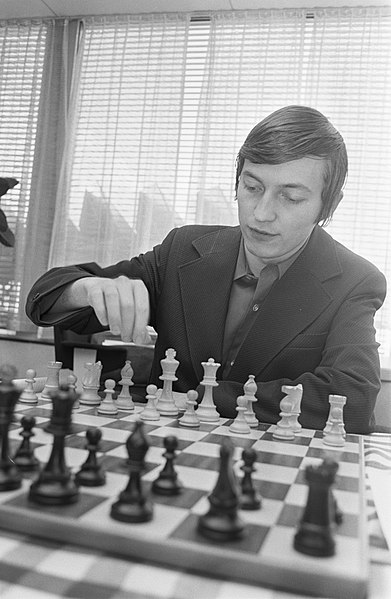
First, we'll see that after the first ten games we had only +5 -3 =2 for Fischer. If we take into account that Bobby Fischer hadn't played any tournament or match for three years and Anatoly Karpov had to play his first World Championship ever a 5-3 after ten games seems to me very plausible. After twelve games we can assume that Bobby Fischer would have regained his top form of a few years earlier and the lack of practice would no longer have influenced his play. On the other hand, we know that Karpov began to play worse when a match lasted longer than expected (e. g. Karpov - Korchnoi 1974 and 1978, Karpov - Kasparov 1984). Playing a World Championship match for seven weeks can be very strenuous and we must also consider the fact that probably there would have been no short draws at all.
Playing 20 moves and then agreeing a draw was no option if a Bobby Fischer was involved in a match against a Soviet player.
Above: Karpov in 1976, Rob Bogaerts / Anefo Public Domain, via Wikimedia Commons
Karpov's performance is quite good
In 1971 Fischer scored 17-1 with only 3 draws against Taimanov, Larsen and Petrosian in their candidates' matches. Now compare this with the 10-4 with 3 draws against Karpov from my computer simulation. It is obvious that Karpov's result is not that bad.
Can a simulation really predict what would have happened?
No, I don't think so. The only definite result of my little experiment is that the Fischer personality of Rebel 13 won the match against the Karpov personality. But how similar are these personalities in comparison with the real players? For my taste, the "Karpov" personality of Rebel 13 played in a more aggressive way than the "real" Anatoly Karpov would have played sacrificing pawns and pieces as if Mikhail Tal had been one of his seconds. But even this could have happened back in 1975 because Karpov always got the best possible support by Soviet top grandmasters. Mikhail Tal as one of Karpov's seconds is not unlikely considering the fact that they would have done almost everything to regain the title.
Will Anatoly Karpov improve the Rebel 13 "Karpov" personality?
I hope Anatoly Karpov won't get too angry when reading this article. Don't blame me, Mr Karpov! Perhaps you might contribute something to improve the "Karpov" personality of Rebel 13 instead. I'm ready to repeat the experiment with an improved Karpov personality as soon as it is available.
Links
How to install Rebel 13 with Fischer / Karpov personalities under the Fritz GUI
A huge thanks to programmer Ed Schroeder for having made available Rebel 13/ProDeo 2.0 with the Fischer and Karpov personalities! Under the Fritz GUI as delivered with Fritz 16, Komodo 12 or Houdini 6 you can easily install the program and create your own opening books for Fischer, Karpov or any other famous player using the databases from ChessBase. You can download Ed Schroeder's program and the instructions for installation from his website.
You'll find the names of the several available personalities in a folder called "personal". The Fischer and Karpov personalities are not offered by default. If you want to use them go to the folder where the Rebel 13/ProDeo 2.0 engine is and open the file "wb2.uci.eng" with a text editor (e.g. notepad). There you'll find:
[EXTRAS]
Personality=setvar personality personal\%s.eng|combo|ProDeo|ProDeo|Strong Club Player|Average Club Player|Absolute Novice Player|Q3 - Tactical Engine
The offered personalities by default are "ProDeo", "Strong Club Player", "Average Club Player", "Absolute Novice Player" and "Q3 - Tactical Engine"
By replacing "Q3 - Tactical Engine" by another personality you'll have the choice to use it, e.g.
[EXTRAS]
Personality=setvar personality personal\%s.eng|combo|ProDeo|ProDeo|Strong Club Player|Average Club Player|Absolute Novice Player|FISCHER
It is advisable to store a copy of the original file in a separate folder before you change it. Don't forget to save the altered file before you use it.
Now you have the opportunity to open "parameters" and choose the Fischer personality.
In order to create a Rebel 13 with the Karpov personality, you should first copy all the files of the engine into a separate folder. Now switch to that folder and edit "wb2.uci.eng". By replacing the last entry with "KARPOV" you'll have the choice to use the Karpov personality:
[EXTRAS]
Personality=setvar personality personal\%s.eng|combo|ProDeo|ProDeo|Strong Club Player|Average Club Player|Absolute Novice Player|KARPOV
You can also change the name of the engine by modifying the "wb2.uci.eng" file:
[ENGINE]
Name = ProDeo 2.0
Author = Ed Schröder
Filename = rebeluci.exe
[ENGINE]
Name = ProDeo 2.0 "Bobby Fischer"
Author = Ed Schröder
Filename = rebeluci.exe
If you don't want to use Rebel's own opening book you can turn it off by changing another parameter:
[OPTIONS]
; InitString = BookOff/n
[OPTIONS]
InitString = BookOff/n
By removing "; " you turn off Rebel's opening book and can use your own one. The databases offered by ChessBase contain plenty of games played by famous grandmasters by which you can create opening books with the repertoire of e.g. Fischer, Karpov, Kasparov, Tal, Alekhine etc. and use them comfortably under the Fritz GUI.
8 matches and 16 deviations: The Fischer and Karpov personality files:
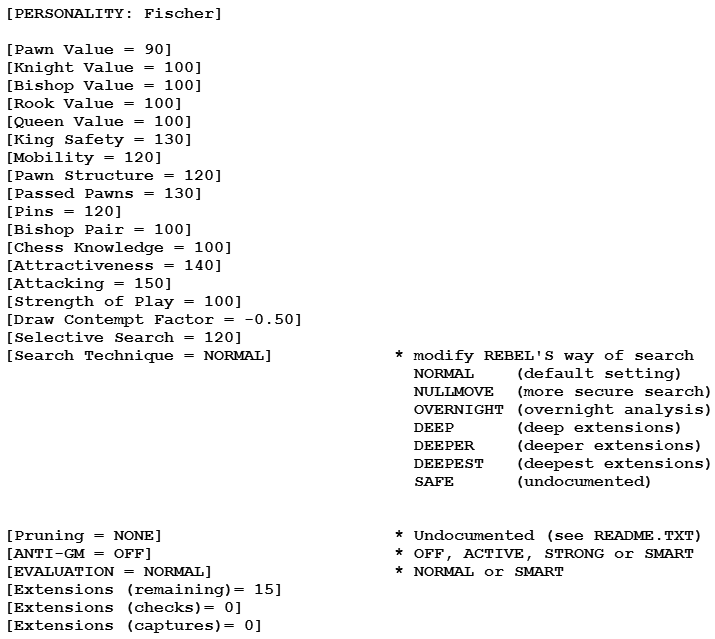
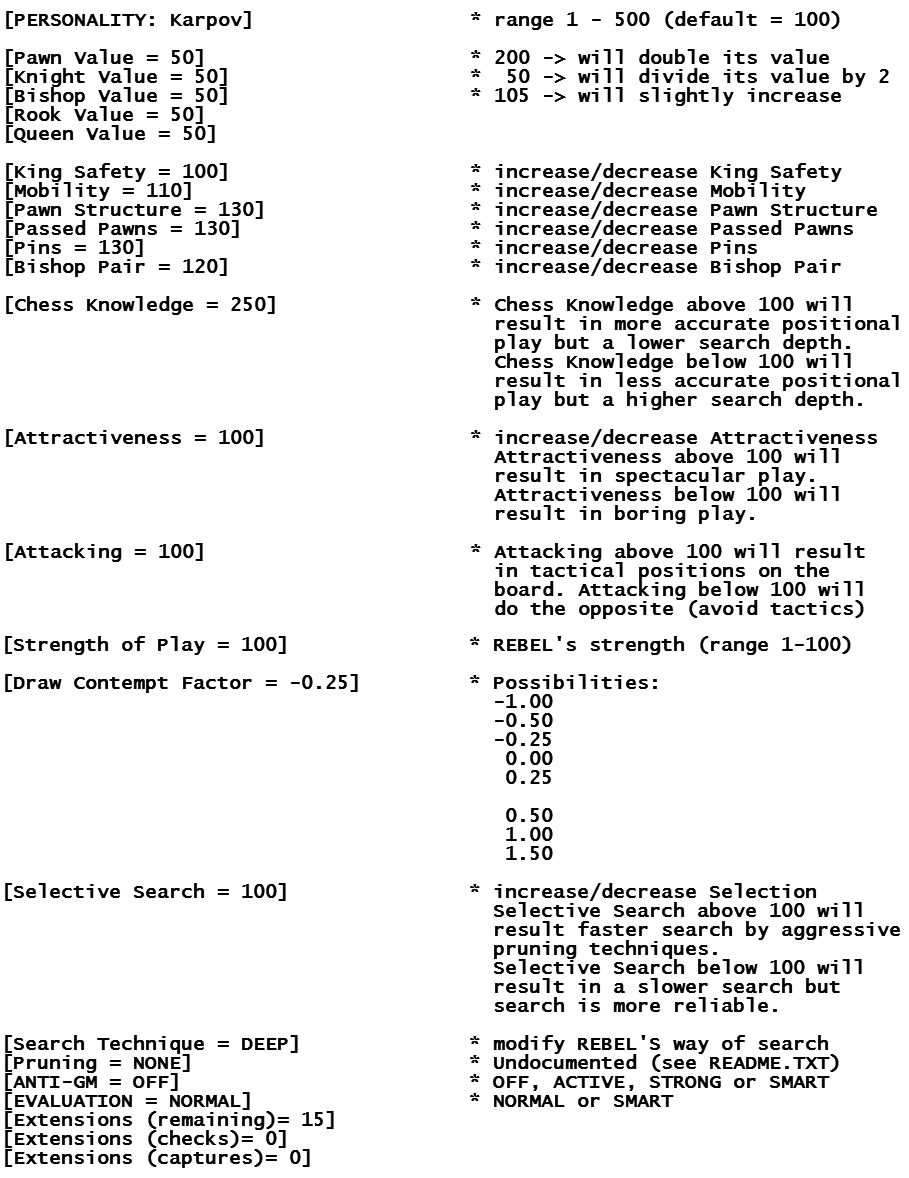
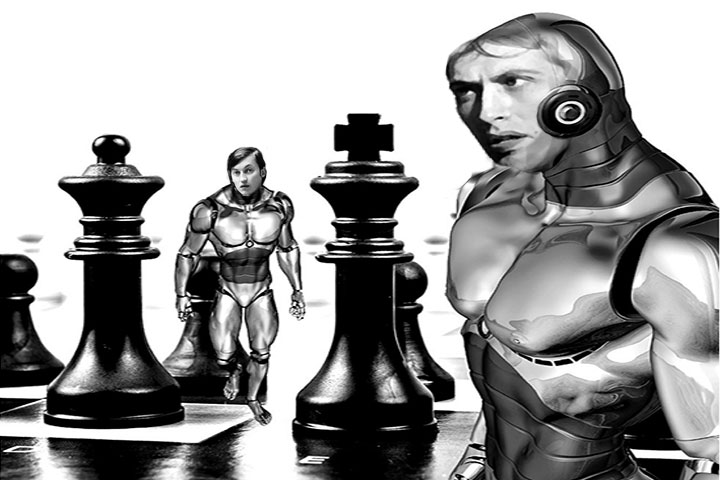

















 Some months ago when doing some research on computer chess I found
Some months ago when doing some research on computer chess I found 







